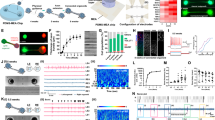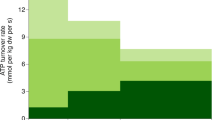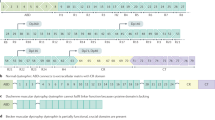Abstract
PERIPHERAL axons retain into adult life the ability to grow, and do so either if they themselves are cut or if neighbouring tissues are denervated (collateral sprouting1). Collateral sprouting also occurs in botulinum toxin poisoning2, motor end plate disease of mice3 and myasthenia gravis of man4. Muscle inactivity is common to these otherwise different conditions. We have therefore investigated whether inactivity in a muscle, produced by a local nerve block, will give rise to collateral sprouting. By paralysing motor nerves for a few days with a local application of tetrodotoxin (TTX) we have found that motor nerve terminals in the affected muscles do grow collateral sprouts. We conclude that muscle inactivity results in a sprouting stimulus to nerves.
This is a preview of subscription content, access via your institution
Access options
Subscribe to this journal
Receive 51 print issues and online access
$199.00 per year
only $3.90 per issue
Buy this article
- Purchase on Springer Link
- Instant access to full article PDF
Prices may be subject to local taxes which are calculated during checkout
Similar content being viewed by others
References
Edds, MacV., Q. Rev. Biol., 28, 260–276 (1953).
Duchen, L. W., and Strich, S. J., Q. J. exp. Physiol., 53, 84–89 (1968).
Duchen, L. W., and Stefani, E., J. Physiol., Lond., 212, 535–548 (1971).
Brownell, B., Oppenheimer, D. R., and Spalding, J. M. R., J. Neurol. Neurosurg. Psychiat., 35, 311–322 (1972).
Hille, B., Prog. Biophys., 21, 1–32 (1970).
Lavoie, P.-A., Collier, B., and Tenenhouse, A., Nature, 260, 349–350 (1976).
Pestronk, A., Drachman, D. B., and Griffin, J. W., Nature, 260, 352–353 (1976).
Aguilar, C. F., Bisby, M. A., Cooper, E., and Diamond, J., J. Physiol., Lond., 234, 449–464 (1973).
Diamond, J., Cooper, E., Turner, C., and Macintyre, L., Science, 193, 371–377 (1976).
Akert, K., and Sandri, C., Brain Res., 7, 286–295 (1968).
Duchen, L. W., J. Neurol. Neurosurg. Psychiat., 33, 40–54 (1970).
Barker, D., and Ip, M. C., Proc. R. Soc., Lond., B 163, 538–554 (1966).
Lømo, T., and Rosenthal, J., J. Physiol., Lond., 221, 493–513 (1972).
Lømo, T., and Westgaard, R. H., J. Physiol., Lond., 252, 603–626 (1975).
Jones, R., and Tuffery, A. R., J. Physiol., Lond., 232, 13–15P (1973).
Author information
Authors and Affiliations
Rights and permissions
About this article
Cite this article
BROWN, M., IRONTON, R. Motor neurone sprouting induced by prolonged tetrodotoxin block of nerve action potentials. Nature 265, 459–461 (1977). https://doi.org/10.1038/265459a0
Received:
Accepted:
Published:
Issue Date:
DOI: https://doi.org/10.1038/265459a0
This article is cited by
-
Pharmacological BACE Inhibition Improves Axonal Regeneration in Nerve Injury and Disease Models
Neurotherapeutics (2020)
-
Alterations in neuromuscular junction morphology during fast-to-slow transformation of rabbit skeletal muscles
Journal of Neurocytology (1996)
-
The effect of nerve activity on the distribution of synaptic vesicles
Cellular and Molecular Neurobiology (1985)
-
Suppression of sprouting at the neuromuscular junction by immune sera
Nature (1984)
Comments
By submitting a comment you agree to abide by our Terms and Community Guidelines. If you find something abusive or that does not comply with our terms or guidelines please flag it as inappropriate.



